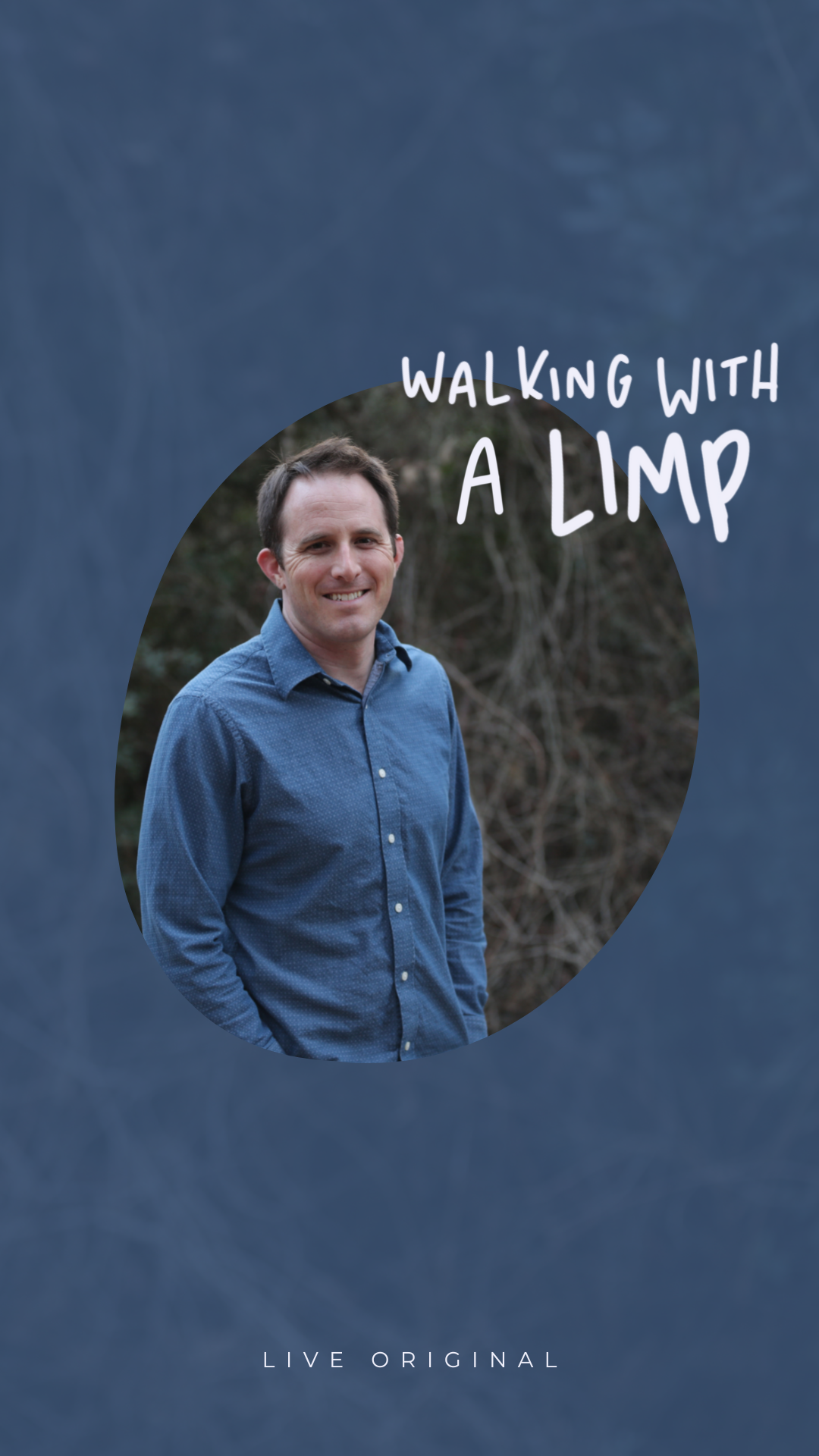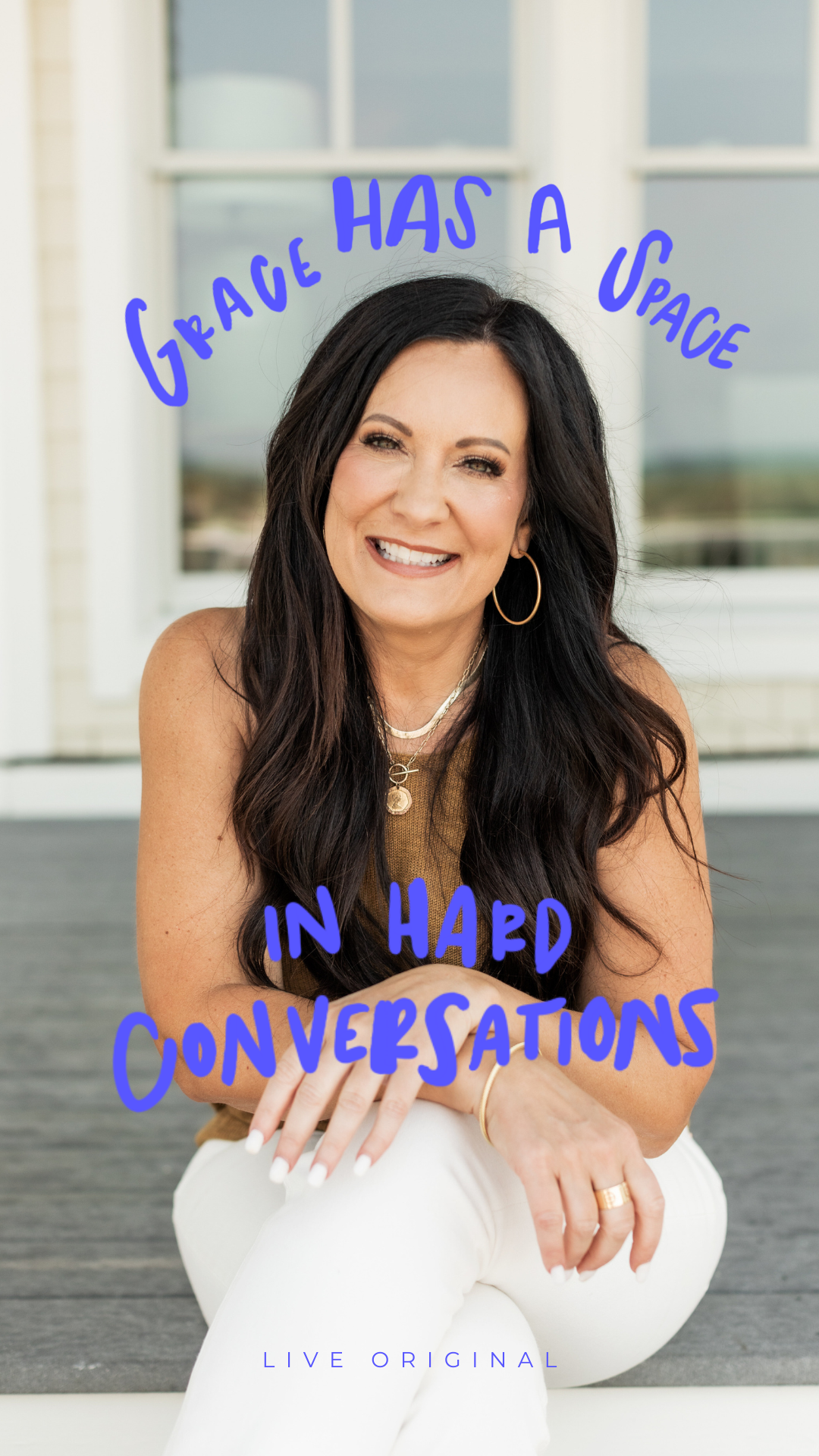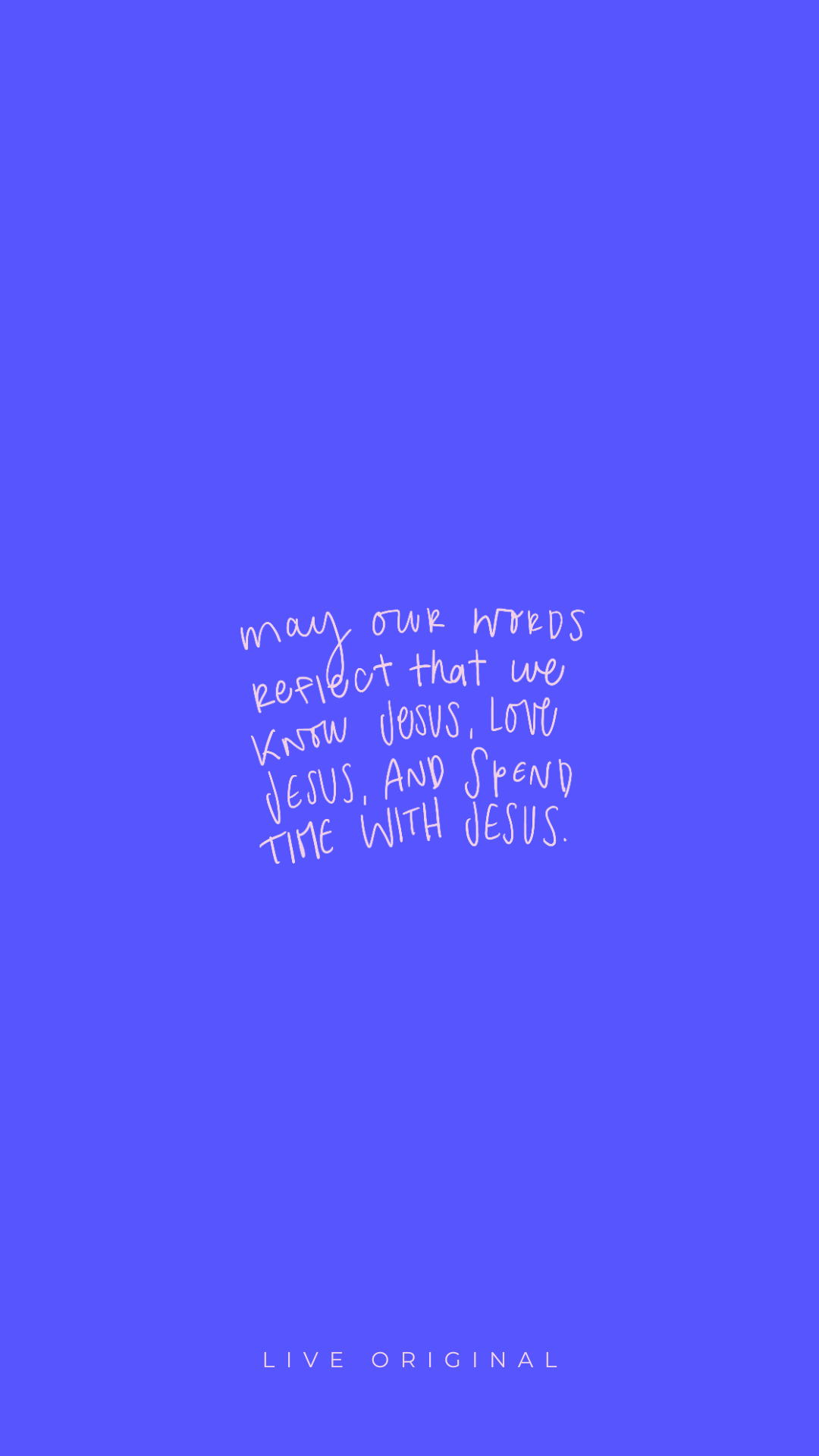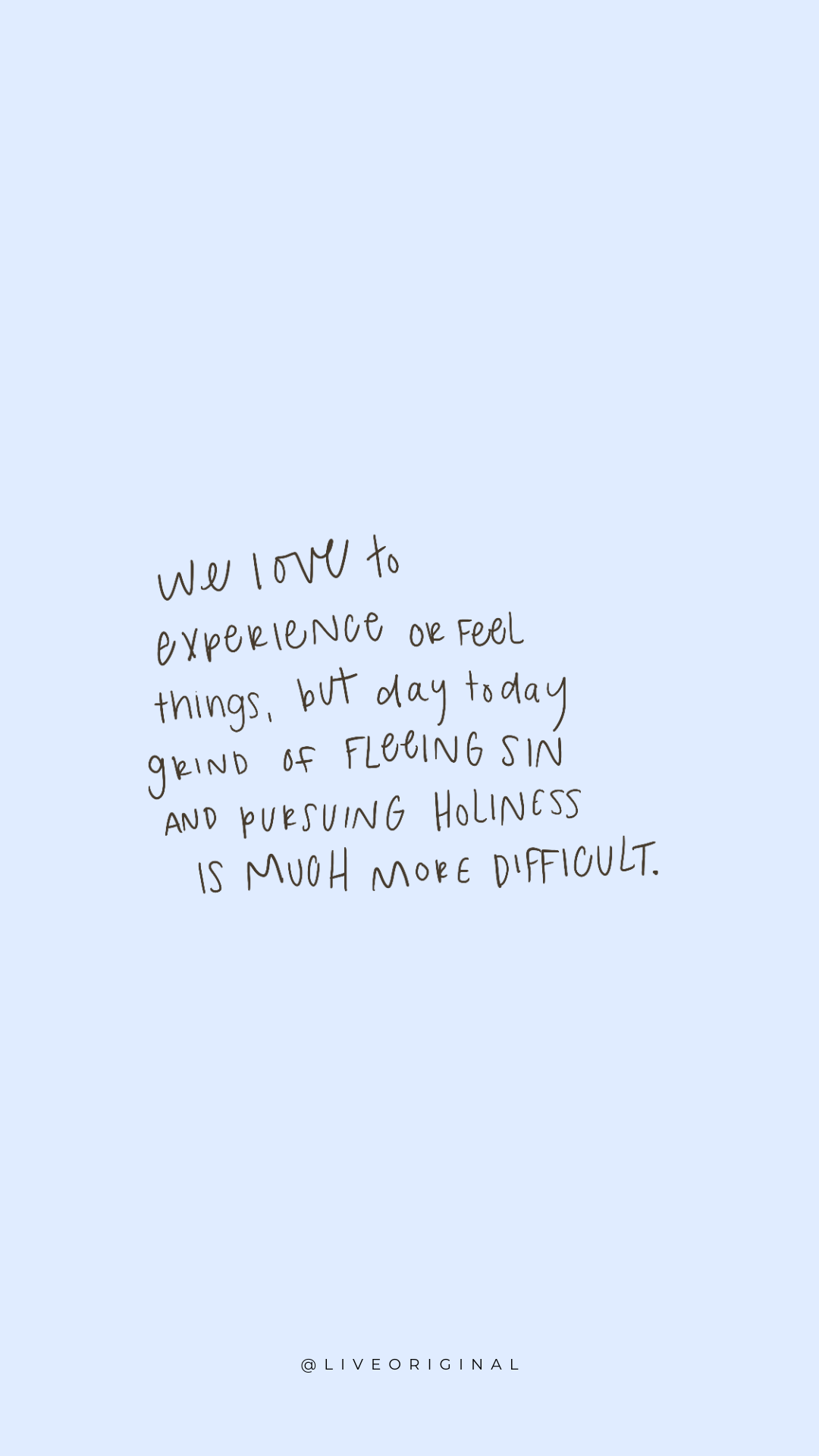
by Heather Savonne | Mar 28, 2023 | Life Advice
“Your kingdom come, Your will be done, on earth as it is in heaven” Matt 6:10
Ah. Heaven. Such a mysterious place to think about. Many of us, when we imagine heaven, we often picture fluffy cotton candy clouds, rainbows, bright lights, white robes, halos, maybe even a few angel wings filled with soft white feathers. Or if you’re like me, I used to imagine it looking kind of like the matrix, all white, no noise, an empty void where nothing much happened. A place where a pen could drop and it might echo for centuries. By the grace of God, I have a new view of heaven. If you don’t know by now, heaven is a very real place. A place where many followers of Christ hope to live forever in eternity with God. See, God created heaven on purpose and for a purpose. That’s why God creates things in general, for a purpose. He created tax collectors and the weather. And yes, he created mosquitoes for a purpose just like He created you for a purpose. The first line of The Bible in Genesis 1:1 says, “In the beginning, God created the heavens and the earth.” Interestingly, the heavens are the very first thing God created. Why is that? The Bible actually tells us a lot about heaven, what it will be like, and what we can look forward to without spoiling too many juicy details. After all, being mysterious is one of God’s chief characteristics. But we know it will not be like the earth we live in nor the sky we look up to. It will be undoubtedly more beautiful than any mountainous sunrise or west coast sunset. In Revelation 21, it tells us, there will be a new heaven and a new earth; where there will be no weeping, no sorrow, and no pain. Laughter, dancing, streets of gold, and perhaps a book with your name written in it. Most importantly, there will be Jesus. Awaiting with arms wide open for every new arrival. Armies of angels cheering every time someone commits their heart to Jesus. But, I have some sobering news for you. It’s fun getting lost in the idea of how great heaven will be but there’s still a lot of life to be lived here on earth before that time comes for you and I. So, what do we do with all that time? Sit around waiting for heaven? No! That’s certainly not what The Bible tells us to do. Remember the scripture that opened the chapter? Let’s read the words of Jesus in its entirety,
“This, then, is how you should pray:
“‘Our Father in heaven,
hallowed be your name,
your kingdom come,
your will be done,
on earth as it is in heaven.
Give us today our daily bread.
And forgive us our debts,
as we also have forgiven our debtors.
And lead us not into temptation
but deliver us from the evil one.”
Jesus, in this passage, is teaching His disciples how to pray and more importantly what to pray. “Your kingdom come, Your will be done, on earth as it is in heaven.” This prayer is telling us to seek to have heaven here on earth. How can we possibly have heaven on earth? We know we can because Jesus tells us to pray for it. In the next chapter Matthew 7, it reads, “Seek and you shall find. Ask and it shall be given. Knock and the door will be opened.” Let me ask you a question. Are you asking for heaven on earth or are you simply just living on earth? Glimpses of heaven exist all around us if we have eyes open to see and ears clear to hear. I know having heaven on earth exists simply because God himself aka Jesus prayed for it and many people, along with myself, have been earnestly praying the infamous Matthew 6 prayer for thousands of years. Those prayers have been heard and those corporate and individual prayers have been answered. God wants us to communicate with Him. Why? We were created to have a real relationship with Him through His Son Jesus. God, The Father, the one in the prayer Jesus taught the disciples, lives in heaven. “Our Father, who art in heaven”. Yeah, that’s not just some fancy smancy way of praying. It’s literal. God dwells in heaven and it is His ultimate desire to have you come live with Him there. The only way this is possible is through Jesus. In John 14, when Jesus is telling the disciples that he must go away (back to heaven). He drops a very important piece of information for humanity’s quest for God. He says, “I am the way, the truth, and the life, no one comes to the Father except through me.” But like I expressed previously. That time will come. That’s why we have Jesus, and the Holy Spirit. Who if you didn’t know existed in the very beginning of time…yes, even before the heavens but that’s another point for another day. We can simply have heaven on earth because we have Jesus inside of our hearts and since the trinity (God, Son, and Holy Spirit) are in us, heaven is in us. Heaven quite literally made its way to earth in the form of a baby that one starry night in Bethlehem. Heaven invaded the earth in the most humble way and erupted history forever. Heaven did not leave when Jesus ascended back to be with His Father but gave us a crucial piece of heaven called our comforter, or The Holy Spirit. God is in us. Have you ever met someone or a stranger and thought to yourself? Wow, they were so kind. They must’ve been an angel. They gave you a slice of heaven. Maybe it was an experience that made you feel light as a feather, exploding with joy, and blanketed in peace. Whether you know it or not, you are someone’s slice of heaven. Every person that has accepted Jesus into their heart as Lord and Savior has heaven inside of them. What we do with that is important and has the ability to change our lives, other people’s lives, and the world. That’s not to toss out an optional suggestion. That’s exactly what the disciples did and all the brave men and women before us who carried the message of Christ this far.
The Word tells us that the Holy Spirit lives inside our bodies like a temple. So did you know that a slice of heaven lives inside of you too? Wherever you go – God goes before you, behind you, inside you, and all around you. “It is the LORD who goes before you; he will be with you and will never fail you or forsake you. So do not fear or be dismayed.” Deuteronomy 31:8
You can have heaven in your home. Yes, even with little children. “…As for me and my house we will serve the Lord.” Joshua 24:15
You can have heaven in the workplace and in your classroom. You have the power and authority of Christ to change the atmosphere of a room simply because you’re there. And if you’re in Christ and He is in you, then He is there too!
You can experience heaven in your marriage, family, and relationships. Probably one of my favorites is that we can have heaven in your mind. “Set your minds on things above, not on earthly things.” Col. 3:2 With your head “in the clouds” set your minds on heaven! King David knew to lift his mind’s eye to the skies and declared, “I lift up my eyes to the hills– where does my help come from? My help comes from the LORD, the Maker of heaven and earth.” Psalm 121:1
Heaven in your health. Heaven in your heart. Heaven on earth. What does that mean? Heaven is a perfect place. Perfect unity and harmony with the Father are awaiting us in heaven. Perfect alignment of our spirits and our new bodies. If you’re needing healing then look to heaven and look to the one who WAS and IS perfect in our place; Jesus. For by His stripes we are healed. The perfect lamb who was slain for us that we might find and accept perfection to be found in Him. 2 Corinthians 5 tells us our bodies ache and groan for heaven because we know we belong there with our Maker. May we always be reaching heavenward.
Finally, you can have heaven be released from you to others! Jesus has released us to go into the world as seasoning for the unseasoned (salt) and light amongst the dark. He has commanded us to bring His good news to the ends of the earth. He has called us to bring the sweetness of heaven into people’s bitter days. My prayer today is that you would see that heaven is not too far away. There are little chunks of heaven to be experienced everyday. So keep seeking heaven. And when you find it, you might realize all along that heaven was in fact seeking you.
Heather Savonne is a worship leader and singer/songwriter living in Houston, TX. She attended Wayland Baptist University in Plainview, TX where she got a B.S. in psychology and English minor. Heather is working on her first solo worship album and loves to encourage women in their daily walk with God on all of her social media platforms. Heather is married to her husband of 3 years, Lea, who has a ministry called Childish Faith Ministries where they both serve as worship leaders, kingdom creators, and partner with local ministries to highlight Christian creatives.
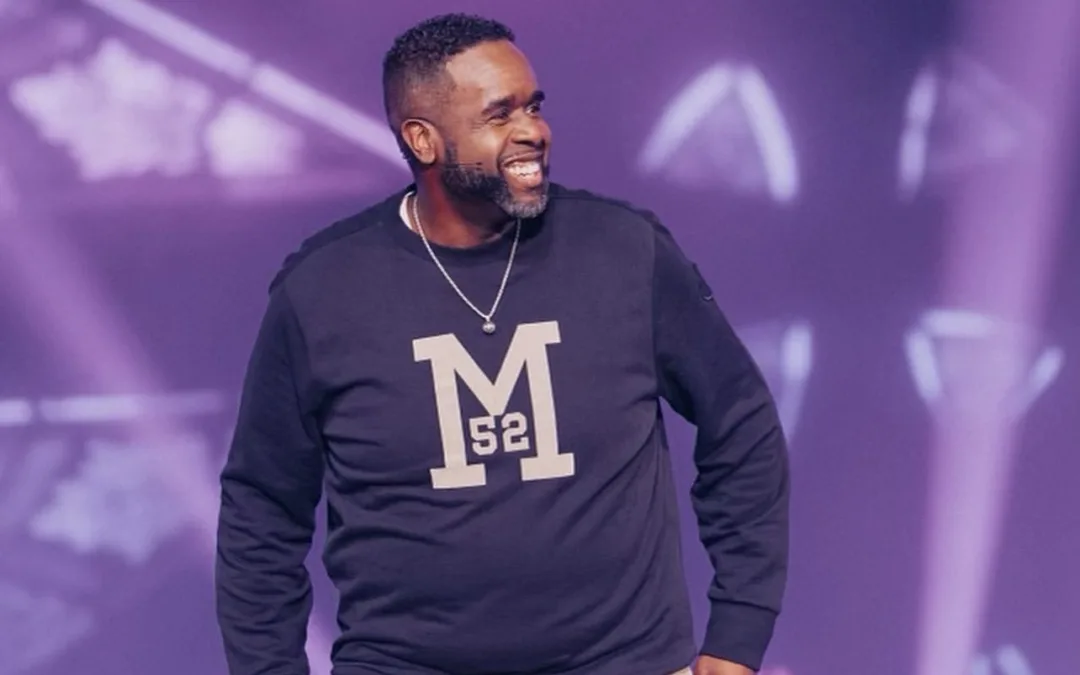
by Jimmy Rollins | Mar 23, 2023 | Life Advice
In Matthew 5, Jesus stood on a mountainside with His disciples and captured the attention of a diverse crowd who had been following Him. The message He shared with them was extremely important. So important that it’s worth reading a large portion of it together. Don’t skip over this passage. Listen to Jesus’ words as if He is talking to you, because He is.
Let me tell you why you are here. You’re here to be salt-seasoning that brings out the God-flavors of this earth. If you lose your saltiness, how will people taste godliness? You’ve lost your usefulness and will end up in the garbage.
Here’s another way to put it: You’re here to be light, bringing out the God-colors in the world. God is not a secret to be kept. We’re going public with this, as public as a city on a hill. If I make you light-bearers, you don’t think I’m going to hide you under a bucket, do you? I’m putting you on a light stand. Now that I’ve put you there on a hilltop, on a light stand—shine! Keep open house; be generous with your lives. By opening up to others, you’ll prompt people to open up with God, this generous Father in heaven. (Matthew 5:13–16 msg)
God calls us to be salt and light. He calls us to be influential. Kingdom influence is not preferential; it is all-inclusive. This is where we live beyond ourselves and love beyond our preferences. Kingdom influence means we can add our personal, cultural flavor no matter what environment we are in. We add to the flavor no matter what pot we are in. We were designed in such a way that although we are meant to be with others, we do not lose ourselves.
Have you ever bitten into a raw onion? Nasty, right?
The true power of the onion is evoked when it is cut and cooked to add to the flavor of other ingredients. On its own it is nowhere near as great as it is lending its strength to other ingredients that may look, smell, or taste nothing like it. But when you cut the onion and add it to the roux as part of the holy trinity with green peppers and celery, you have something so much deeper, better, and pleasing. That original onion is not lost at all; if anything, its flavor is enhanced by its collaboration.
Salt is also necessary because a little bit of salt awakens everything that is present but lying dormant. Salt enhances—it brings other things to the surface. Salt influences. Salt has the capacity to be a powerful and compelling force, to make the ordinary extraordinary. It can change and affect anything it is paired with. It enhances flavor. Without salt many foods are bland and tasteless. We are God’s flavors and colors. Which is why Jesus calls us to be the salt of the earth.
Different people—God colors.
Different cultures—God flavors.
I love that Jesus referenced salt in speaking of our purpose. He literally said that our value is determined by the value we bring out of others. Not in what we have, not in what we look like, not even in how we worship Him, but in how we treat others. And in how we treat others that are not like us.
Being in relationships with those who are different from us is the first step. Unity is the next step. In order to get to this next step, we must value one another. We must value what makes us different. We must value one another’s experiences. We must value the work that God is doing in the person across the room or across the globe.
We must be salt and light.
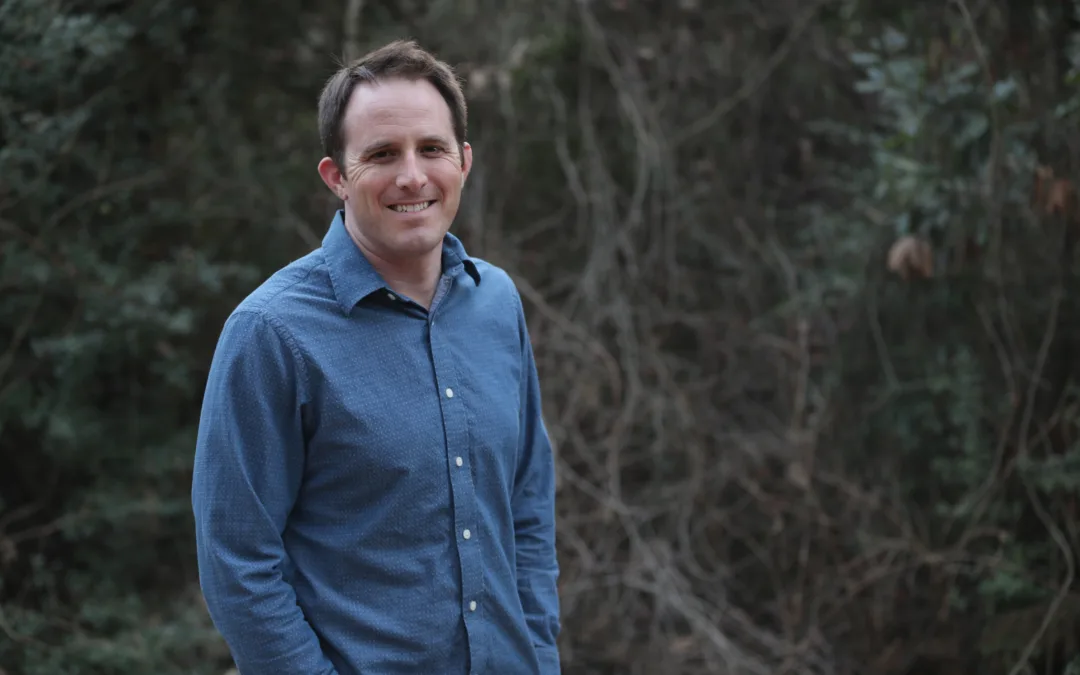
by Joel Malm | Mar 21, 2023 | Life Advice, Wisdom
My grandfather grew up in poverty in the bayous of southern Louisiana. When he was a young child, he contracted polio and lost his ability to walk. The Shriners Hospital paid for a surgery that fused his knee and gave him some mobility, but for his entire life, he had to use a cane. Eventually, he had to use a wheelchair. He became very successful in business but was always so concerned about his safety and ability to be mobile that he hardly ever stopped moving. Always buying or selling land. Always trying to keep a safety net around him to compensate for his limp. He regularly had two or three backup mobility devices in his garage, just in case.
The last months of his life, he was bedridden. It was a dark cave for him. During his final weeks, I watched him surrender to where he was. I’ll never forget sitting next to him in his bed, just a few days before his death, when he said, “Joël, God has taught me more about who He is while I was laying in this bed for the last few months than I think I’ve learned in my entire life.” My grandpa was constantly running, trying to prove he wasn’t limited. He was always trying to provide and make sure he would be safe. He didn’t want to show any weakness. But the last few months of his life forced him to slow down. God was working—right until the end—helping my grandfather process a lifetime of seasons. God will accomplish his work, to the very end. But I’m convinced that we don’t have to wait until the very end to make some sense of life.
If you want to find some meaning beyond just survival right now (which is exactly what I hope this book is helping you do), acknowledge your reality and lean into it. Don’t despise the wounds and the limp you’ve gotten on the journey. Like my grandfather, we all tend to see our limp as the greatest threat to our security, connection, or control. It’s a sensitive spot that leaves us vulnerable— something we need to compensate for. But it’s our limp that God uses to give us a message for the world.
There’s an odd story in Genesis where Jacob, the grandson of Abraham the patriarch, demands a blessing from an angel and ends up in a wrestling match with him for it. Jacob does get the blessing, but in the process, the angel permanently injures Jacob’s hip. Then the angel (who, it turns out, is God Himself) changes Jacob’s name to Israel, which means “wrestles with God.” Jacob got his blessing in the very moment he got a wound he would carry for the rest of his life.
With that wound, he also got a new identity. He became Israel and stepped into fulfilling his role in the promise given to his ancestor Abraham of making a great nation. He was part of completing the work of his father, but first he had to enter the battle and emerge with a wound.
I think this story is a picture of what happens in our lives.
Every circle will come with wounds. Wounds people gave us. Wounds we gave ourselves. Others are wounds that God Himself allowed to be inflicted. But in the strange irony of God’s redemption, those wounds are often what He uses to accomplish His purpose in your life. The blessing you want in your life will often come with a deep wound that causes you to limp. The wound you got in the dark cave may actually be precisely what God uses to give you a new perspective.
What if you saw your wounds as the grace of God? Yes, a limp feels limiting. Sometimes our wounds make us feel like half the person we used to be. But what if they’re what God wants to use as the source of your strength, so you can truly say, “I am content with weaknesses, insults, hardships, persecutions, and calamities. For when I am weak, then I am strong.” Talk about a perspective shift!
In Thornton Wilder’s short play, The Angel that Troubled the Waters, a man is sitting by a healing pool waiting for an angel to stir up the waters so he can jump in and be healed of a flaw he doesn’t like about himself. The angel appears, stirs the water, but then refuses to let the man enter the pool for his healing. The man protests, begging the angel to let him in. But the angel says: “Without your wounds, where would your power be? It is your melancholy that makes your low voice tremble into the hearts of men and women. The very angels themselves cannot persuade the wretched and blundering children on earth as can one human being broken on the wheels of living. In Love’s service, only wounded soldiers can serve.”
Your wounds have the power to speak life to others. Your wounds give you a message to share with the world.
Is it possible that the thing you’re most ashamed of—the thing you hate the most from your past—is what God wants to use as part of redeeming the world from darkness? In the words of an ancient mystic, “The wound is the place where the Light enters you.” What if the limp you try to hide—the wound—is the very thing that will open the door to make an impact in this world? As Robert Bly said it, “Where a man’s wound is, there he finds his genius.”
What about the parts of your story—the circles—you still can’t make sense of or bring any closure to? You’ve tried to find resolution, you even pulled back and spent some time pondering, but it’s not bringing any peace. I’ve been there, and I like what Rainer Rilke has to say about those unresolved parts:
Be patient toward all that is unsolved in your heart and try to love the questions themselves, like locked rooms and like books that are now written in a very foreign tongue. Do not now seek the answers, which cannot be given you because you would not be able to live them. And the point is, to live everything. Live the questions now. Perhaps you will then gradually, without noticing it, live along some distant day into the answer.
Joël Malm is the founder of Summit Leaders, where he uses outdoor adventure and leadership coaching to help people find their calling and pursue a vision for their lives. His expeditions to places like Mount Kilimanjaro, the Grand Canyon, and Machu Picchu have taken him to more than seventy countries on six continents. He holds a bachelor’s degree in political science and a master’s degree in counseling. Fluent in three languages, Joël speaks at churches, conferences, and corporate events nationwide and is the author of Vision Map (Moody Press, 2014), Fully You, Love Slows Down (Salem Books, 2020), and Guided by Thunder. He lives with his wife and daughter in Texas.
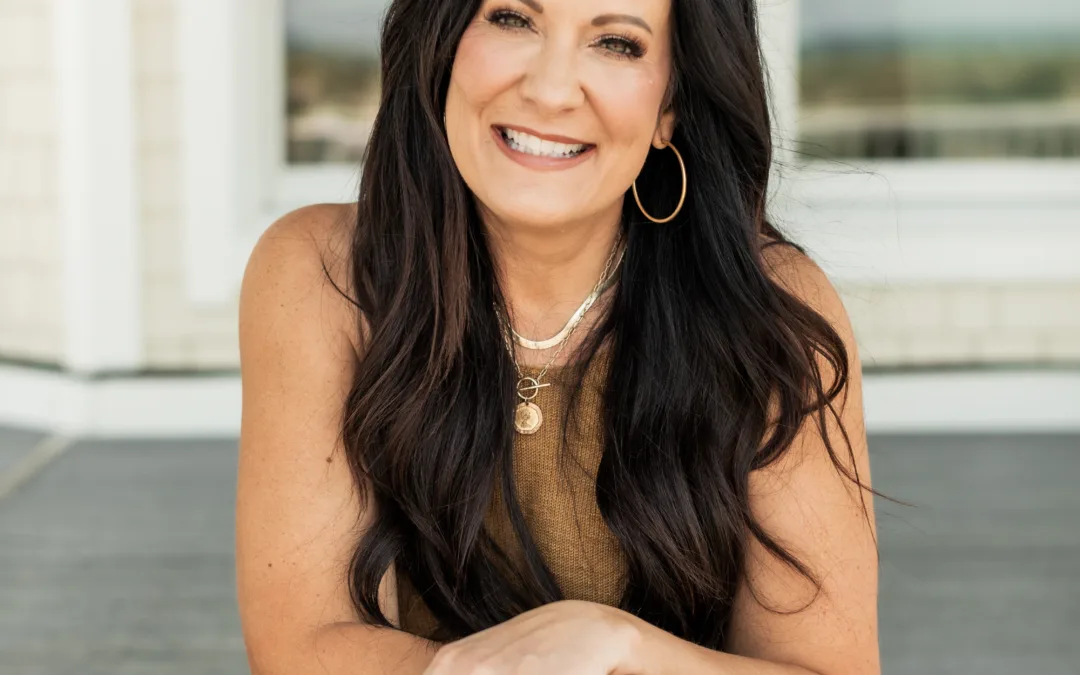
by Lysa TerKeurst | Mar 16, 2023 | Life Advice, Wisdom
“Let your speech always be gracious, seasoned with salt, so that you may know how you ought to answer each person.” (Colossians 4:6 ESV)
Sometimes God’s Word can feel like an impossible order, don’t you think?
Take the verse above for example: Paul told us we are to let our words “always be gracious.” The NIV actually reads “full of grace.” Full of it. As in, not sometimes gracious. A full atmosphere of graciousness even when the conversations are hard.
And that’s just about the moment when I admit I just want to lie down on the floor and loudly declare, “But I am not Jesus!” Ugh.
I don’t know about you, but sometimes gracious speech seems impossible for me. When someone’s hurtful words have landed like daggers in my heart, I want to defend myself. Maybe even attack back a bit. And point out how they’re misunderstanding my intentions. Not offer them gracious words. And even my most enjoyable relationships have moments where this doesn’t feel completely possible … Relationships are just messy.
I’ve been thinking about all of this as I’ve been on a recent journey of learning how to set and keep healthy boundaries in my relationships. It’s not easy. It’s hard to examine places of dysfunction, distress, distrust, and maybe even destruction within relationships with those you love.
When we’re in a difficult relationship or even a destructive one that isn’t sustainable, especially if addictions are involved, there does need to be a measure of grace and compassion. Because sometimes what is actually driving unhealthy behaviors in people is underlying shame or a lack of peace deep inside. Many times it’s both.
What I’m not saying is that because of grace and compassion, we condone or enable their actions and stay in situations where there’s harm being done. But what I am saying is that, as we take a step back, we can consider having grace and compassion for whatever caused the original root of shame and chaos in their heart that then drove them to try to act and react in such unhealthy ways. We don’t want the hurt they’ve caused to make us betray who we really are. We aren’t cruel or mean-spirited so we don’t want to bring any of that into our boundary setting.
I also want to have grace because I don’t have life so figured out that I never act and react in unhealthy ways. I have my own issues that I need to work on and work through with counseling. Learning to have grace and compassion appropriately, while still also having boundaries, continues to be one of my biggest lessons.
So, how can we really be gracious without excusing away hurtful behavior we’re experiencing? Or avoiding honest conversations we need to have?
We can bring truth into an atmosphere of grace. We can express what needs to be expressed, set a boundary that needs to be set, say what needs to be said and stay completely committed to the reality of truth.
But we can also foster it all in an environment of grace that never dishonors the other person. We can tell the hard truth, but we don’t have to say it in a harsh way.
This doesn’t mean we don’t say the hard things or set boundaries. It means we recognize we want conflict resolution instead of conflict escalation.
So, yes, Paul’s words to the Colossians remind us that our words should be gracious. But He also adds a clarifier that our words should be “seasoned with salt” (Colossians 4:6). In rabbinic tradition, this phrase would have been associated with wisdom. Paul was reminding the Colossians they were called to be people filled with godly wisdom. He wanted their words, and ours, to represent Jesus. And in order to do this, we can follow His model to pursue both grace and truth together.
I don’t know who puts grace to the test in your life or what conversations you need to be reminded to bring grace into. But I do know the Holy Spirit is willing to help us choose truth-filled words presented in a gracious way if only we will pause long enough and ask Him for help. Even as we have hard conversations, implement necessary boundaries and may our words reflect that we know Jesus, love Jesus and spend time with Jesus.
Father God, I want to pause for a moment and thank You for Your Son, Jesus. He could have held back His grace. But instead, He chose to pour out every single drop for me on the cross. So remind me that I give grace because I so desperately need it. Help me bring an attitude of grace into even the hardest of conversations. Give me wisdom in how to hold grace and truth together as I navigate difficult relationships in my life In Jesus’ name, amen.
Lysa TerKeurst is president of Proverbs 31 Ministries and the author of more than twenty-five books, including her latest book You’re Going to Make It: 50 Morning and Evening Devotions to Unrush Your Mind, Uncomplicate Your Heart, and Experience Healing Today (March 2023). She writes from her family’s farm table and lives in North Carolina. Connect with her at www.LysaTerKeurst.com or on social media @LysaTerKeurst.

by Jonathan Pokluda | Mar 14, 2023 | Life Advice, Wisdom
We cannot stop a bad habit. We can only replace it with a good one. I become more and more convinced of that reality. We are creatures of habit, and so much of life is making sure we’re building healthy ones. To be completely honest with you (which I intend to be for the entirety of this work), I really wrestled with what to title this book. There were no less than fifty different titles we tried out along the way. The last thing I wanted was for it to sound like another self-help book. Your local bookstore (and even the Christian section of that bookstore) is already full of those. You see, I am not trying to help people be smarter sinners.
It is one of my core beliefs that everyone lives forever somewhere—either in heaven or hell. My goal is to help other Christians, other believers in Jesus, live the righteous lives Jesus desires for us. The only way that will happen is by living fully dependent on the Holy Spirit and by doing the things Jesus calls us to do in this life as we pursue holiness. In fact, 1 Peter 1:15 instructs us to be holy in all that we do. But how do we do that? I don’t know about you, but that seems like an impossibly high bar to me.
If you have ever parented a toddler (or spent any time around one, for that matter), it does not take long to figure out that toddlers lack something called “impulse control.” Their brains aren’t fully developed enough to process all of the pros and cons of the decisions they make, so instead they just do whatever feels good or fun in the moment.
The truth is, while impulse control eventually kicks in, we never quite grow out of that phase of doing the things we know we shouldn’t. There are many things I’ve done that I didn’t really want to do, but I still did them. Not in a resilient, “do hard things” kind of way but in a rebellious, “I know this isn’t good for me, but I’m going to do it anyway” kind of way. And, like Weston, I’m not sure why.
In his letter to the church at Rome (his theological masterpiece), the apostle Paul sums up this internal conflict we all feel at times as believers in Jesus:
“I do not understand what I do. For what I want to do I do not do, but what I hate I do. And if I do what I do not want to do, I agree that the law is good. As it is, it is no longer I myself who do it, but it is sin living in me. For I know that good itself does not dwell in me, that is, in my sinful nature. For I have the desire to do what is good, but I cannot carry it out. For I do not do the good I want to do, but the evil I do not want to do—this I keep on doing.” (Rom. 7:15–19)
We are the same way! We want to pursue what is pure, true, righteous, and holy, but for some reason . . . we don’t. We do things that pull us away from Jesus. We run toward momentary pleasure or temporal satisfaction. We don’t quite know why we do the things we don’t want to do.
There are countless times I have looked at something with a lustful intent, even though everything in me knows I shouldn’t. I have responded in anger to people instead of showing them the same grace I have been shown. I have felt entitled to purchases I want because I think they will fill some void I feel, even though it never quite scratches the itch. Why do I do this? Why do I do what I don’t want to do? And what should I do instead?
Vices & Virtues
If I have learned anything from both my own life and the thousands of individual case studies I have seen up close as a pastor over the past two decades, there are two lessons that stick out the most. One, sin (most often) subtly creeps into our lives. Two, while we love quick fixes, pursuing holiness is a lifelong pursuit full of micro-decisions along the way.
Throughout the pages of this book, we will look at ten different sins (or vices) that seem to trip us up, year after year, generation after generation. With each one of these sins, we will find it can creep into our lives gradually. No one aspires to be consumed by greed or lust, for example. Your heart just often drifts there over time. If you are not careful and on guard, any one of these nine could be the thing that takes you out. At first glance, you may not even feel like it is something you struggle with, but as you press into each chapter and examine your own heart, you may find ways you have been cohabitating with that vice for years without even realizing it.
Along with each sin, there is a corresponding solution (or virtue) to the problem. For example, the solution to the sin of pride is to practice humility. The solution to the sin of anger is to practice forgiveness. We will examine the pages of Scripture to see how to respond in the most God-honoring way we can to each one of these sins that could trip us up.
In his book A Long Obedience in the Same Direction, Eugene Peterson says this:
“There is a great market for religious experience in our world; there is little enthusiasm for the patient acquisition of virtue, little inclination to sign up for a long apprenticeship in what earlier generations of Christians called holiness.”
His point is simple. We love to experience or feel things, but the day-to-day grind of fleeing sin and pursuing holiness is much more difficult. But just because it is difficult does not mean that it isn’t right. This daily commitment to pursuing the things of Jesus is what it means to be a disciple—a follower of Christ. And here is the best part: you can do this.
Change Is Possible
Almost two thousand years ago, the apostle Paul told the church in Rome, “Do not conform to the pattern of this world, but be transformed by the renewing of your mind. Then you will be able to test and approve what God’s will is—his good, pleasing and perfect will” (Rom. 12:2, emphasis added). At first glance, that sounds great in theory, but is it even possible to renew your mind? To put it simply: yes.
Over the past few decades, scientists have learned that you can, in fact, change (or renew) your mind. For centuries, the commonly held assumption among scientists and psychiatrists was that beyond the formative years of childhood and adolescence, the brain was done developing and no longer changeable.
But what they have discovered more recently is something called neuroplasticity (neuro meaning “of the brain” and plasticity meaning that it can change because it is malleable and moldable). This is the idea that if you take your thoughts captive—or if you stop a particular activity and replace it with another activity or thought pattern—that pathway in the brain atrophies and a new pathway is learned.
You create new neurological pathways when you replace these old, bad, destructive, or unhealthy habits and thinking patterns with newer, true, constructive, and healthier ones. How about that? Thousands of years ago, Paul knew what he was talking about! Renewing your mind might be difficult, but it has a promise attached to it: if you do it, you will know God’s will.
My prayer for this book is that, as you read about the vices and virtues described in the pages ahead, the Holy Spirit will show where you have given the enemy (Satan) a foothold into your life and that, by looking to God’s Word, you will renew your mind as you pursue the life Jesus has called you to. Remember: the only way to conquer a bad habit is to replace it with a better one.
Jonathan “JP” Pokluda is lead pastor of Harris Creek Baptist Church in Waco, Texas, and former leader of The Porch, where he saw the ministry grow from 150 to more than 7,000 young adults. The author of the bestselling Welcome to Adulting and Outdated, as well as the Welcome to Adulting Survival Guide and Welcoming the Future Church, Pokluda came to understand the grace of the gospel in his early twenties, which ignited a desire in him to reach people in their twenties and thirties for Christ. He lives with his wife, Monica, and their three children.

by Tara Sun | Mar 9, 2023 | Life Advice
Some may say that being in control or wanting to be in control is natural. That if it’s our life and future, then we have the right to take control. Others may say that control is just another word for planning—being organized and forward-thinking. I remember thinking that my intense, planner-loving, type A heart was just that—that the reason I was so set on planning my life’s outcome was because I cared about my future. Those who said things like, “Oh well, it’s God’s timing” often rubbed me the wrong way. (Can someone say red flag?) How could people not care about their lives enough to take some action and control to ensure it all panned out?
But in all reality, I had bitten into the same piece of fruit that Adam and Eve ate in the garden. I had traded in God’s beautiful design for my life for the forbidden fruit of control. It looked promising, but ultimately it separated me from God and His perfect plan.
From Genesis to Revelation, we read about humanity’s tendency to turn away from God and take matters into their own hands—and the tragic consequences that inevitably follow. One of Adam’s sons, Cain, was possessed by jealousy and sought to control a situation that had gone awry, culminating in the murder of his own brother (Genesis 4). The people of Babel craved control and power over their own destinies and built a tower to the skies, only to be divided and scattered by God (Genesis 11). In Exodus the Israelites who were so graciously liberated from slavery by God through Moses almost immediately abandoned their divine rescuer in favor of empty idols (Exodus 32). Jonah refused to minister to Nineveh when God called him and tried his very best to edit God’s master plan, only to find himself in the belly of a great fish (Jonah 1).
These were all people who knew God, who had seen His goodness and power to save, who had every reason to trust Him. But they still tried to grab control for themselves.
Have you been there before? Have you told yourself that you trust God with your life but in the same breath turned around and insisted on your own way? Have you struggled to hold on to control, only to be left feeling defeated and frustrated with God when your plans didn’t pan out? I think we all have. I know I have.
But here’s the good news. Here’s the beauty among the ashes, the hope among the chaos. You and I were never meant to have control over our lives—even if your plan and dream seems to have your name all over it. You and I are not powerful enough or good enough to direct our lives. Yes, friend—that is good news, though it might seem like a hard pill to swallow. Why? Because— let’s be honest with ourselves for a moment here—we are utterly hopeless without God. We are sinful human beings. We were designed from the very beginning to need God. We were created from the ground up to depend on Him. Because of the gospel, we are not only saved from the consequences of sin but restored to a chance to live according to that beautiful, original plan— trusting and depending on our loving Father. That’s what makes our neediness such unexpected good news—God Himself is our sufficiency, and He loves us enough to write a better story than we ever could.
I mean, think about it: Isn’t it a blessing that we don’t have to control our lives? That we don’t have to toil, run ourselves ragged, and frustrate ourselves day in and day out? That we actually have God Himself as our designer, and that He gave us the beautiful gifts of surrender and trust?
Every time I start to close my fists and vie for control, I’m reminded of this truth in Proverbs 16:9, where King Solomon wrote, “The heart of man plans his way, but the Lord establishes his steps.” Even the world’s wisest man attempted to write his own story, under the faulty perception that he was in control. But God showed him the truth—that there was only one Lord. William McKane said this about Solomon’s revelation: “A man may plan his road to the last detail, but he cannot implement his planning, unless it coincides with Yahweh’s plan for him.”
Planning isn’t a sin. A desire to strategize and look forward to our future isn’t a bad thing. The error, however, is when we dig our heels in and fight for personal control over our stories instead of trusting God. What happens then is we, consciously or subconsciously, set ourselves up as lord when there is only one true Lord. Life instantly becomes more about what we want to do as the masters of our own fate rather than following our heavenly Father’s will.
A life is nothing without the purpose and plans of the Lord. The full life that Jesus promises in John 10 does not come from you and me grasping at control. It does not come from us insisting on our own way. The full, abundant life available in Christ comes from surrendering our story at the foot of the cross. It comes by way of realizing our need for someone greater to write our story because we were not created to do it on our own. And if you ask me, that’s pretty beautiful.
When we surrender to God, it might feel like we’re making a sacrifice – after all, it feels like we’re being asked to give up quite a lot! But genuine surrender always involves an awesome trade. You get to trade away the burdens of performance, legalism, and control, and instead, receive what I can only describe as profound peace, real joy, and a deeply satisfying purpose. The best is yet to come when we surrender.
If you’re weary, frustrated, and disappointed by your attempts to control your own story and you’re ready to try the better way – then Surrender Your Story is for you.
Adapted from Surrender Your Story: Ditch the Myth of Control and Discover Freedom in Trusting God by Tara Sun. Copyright © 2022 by Tara Sun. Used by permission of Thomas Nelson. www.thomasnelson.com.
Through the Truth Talks with Tara podcast, her Instagram community, and other resources, Tara Sun passionately teaches women of all ages how to know, love, and live God’s Word for themselves. She shows how to break down God’s Word into understandable pieces, while also adding an artistic flare through her digital art. Tara is married to her high school sweetheart, Michael, and is a mom to their newest addition, Hunter. You’ll find them living and serving the Lord in Oregon.






